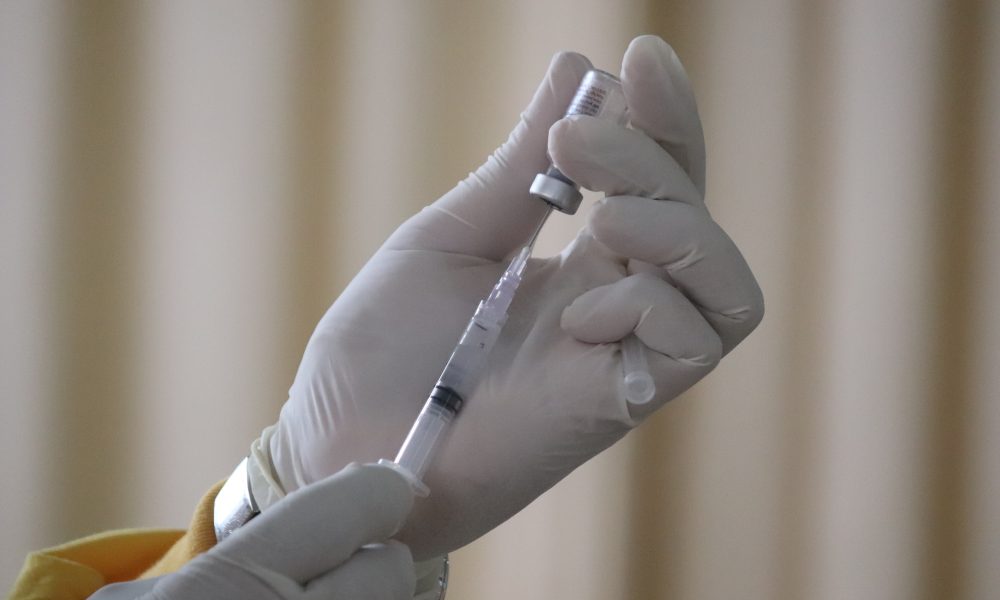Hundreds of people have been vaccinated against monkeypox in Oregon, which has nearly 100 cases, but even more await a shot.
A vaccine approved for use against monkeypox remains in short supply. What’s more, infectious disease experts don’t know how effective it is.
“We think it’s 85% effective,” said Dr. Katie Sharff, chief of infectious disease for Kaiser Permanente. “But we actually don’t know how effective it is in this current outbreak.”
Federal authorities, who control the vaccine supply, have shipped 600,000 doses across the country, with another 800,000 on the way. Federal health officials have approved sending more than 11,000 vaccines to Oregon, and the Oregon Health Authority has received about 7,000, according to Jonathan Modie, a spokesman for the agency. He said Monday that only about 1,600 doses had been administered.
The lag means that hundreds of people are on wait lists. Multnomah County, which has more than half of the 90 cases in Oregon, had administered 900 shots as of Saturday, Kate Yeiser, a spokeswoman for the county’s health department said in an email to the Capital Chronicle. She said the county has scheduled 700 appointments this week.
“We had about 1,600 people on our wait list as of Wednesday and that had been growing by about 100 people per day,” Yeiser said.
More information:
For updates about the outbreak, check the Oregon Health Authority’s monkeypox webpage. Go to your county’s health department to sign up for a vaccine, or check with your health care provider for a vaccine, testing or treatment.
Two doses of Jynneos, the vaccine, about 30 days apart are required for full vaccination. But the Health Authority has advised health care providers to only give one shot unless someone is immuno-compromised.
“Scientific data does show the immune response to the vaccine is quite robust and quite fast, and we do believe that by prioritizing first doses, we increase community immunity as rapidly as possible and provide as much vaccine to as many people who can benefit as quickly as possible,” Modie said in an email. “The plan is to deliver the booster doses perhaps two to three months later to provide that longevity of protection.”
A declaration last week by federal authorities, calling monkeypox a national public health emergency, is expected to increase the vaccine supply and other resources to states.
“One of the areas in the response that Oregon and other states have wrestled with is isolation support – people who have (monkeypox) may need to isolate for up to four weeks, with the isolation period ending when the new healthy skin replaces the entire monkeypox rash,” Modie said.
The Health Authority has not provided any financial help to patients because it’s not received any money to do so, Modie said.
The state Department of Human Services, which provides assistance to low-income residents, does not track infections among benefit recipients, said Jake Sunderland, press secretary for the agency.
Cases spread
As of Monday, 89 people had contracted monkeypox in Oregon. More than half – 54 – are in Multnomah County. Lane County has 15 cases, there are 14 in Washington County, three in Clackamas County and one each in Columbia, Coos and Marion counties.
Those figures are certain to grow, state officials said.
“We don’t anticipate this outbreak will end anytime soon,” Modie said. “That is concerning.”
The disease is rarely fatal though some people have been hospitalized, primarily for pain. Only one patient in Oregon has been treated in a hospital, Modie said.
Most of the patients are men but as of Monday, two women had been affected.
Officials have stressed that monkeypox is not a gay disease.
“As we see more and more cases, it will spill into other social networks,” Sharff said.
“The majority of cases are men who have sex with men and have multiple partners. “That is really the population that we should be focusing on.”
She said preventive should focus on the most susceptible group: gay men, non-binary people and transgender men and women who’ve had more than one anonymous sex partner, including at a bathhouse, sex club, adult bookstore or a similar setting. Also, people who have sex for money are at risk.
With the vaccine in short supply, officials are stressing prevention. “There is a lot of misinformation about how people can get this,” Sharff said.
Monkeypox can cause a range of symptoms, including fever, chills, swollen lymph nodes and muscle aches. It often prompts a face rash that spreads to the limbs. Unlike Covid, it is not easily transmissible. It spreads through bodily fluid or skin-to-skin contact with someone who has a rash or scabs. Sex and kissing are common modes of transmission. The disease can also be spread by touching contaminated material, including sheets.
Gov. Kate Brown, who issued a statement on the disease on Monday, called on Oregonians to prevent the spread.
“I am urging all Oregonians to take steps to protect yourself and others,” Brown said in the statement. “If you’re planning to attend a festival, concert, party or other event, consider the amount of close, personal and skin-to-skin contact that may occur. If you are feeling sick and have symptoms like a new rash, avoid close skin-to-skin contact and call your health care provider or 211 if you think you may have been exposed.”
The Health Authority said people who become infected should avoid close contact with pets and other people to avoid spreading the disease. That means wearing long pants or sleeves until the rash has disappeared.
“Cases must stay home and away from other people until a clinician confirms that all lesions have resolved, the scabs have fallen off and a fresh layer of intact skin has formed,” Modie said. “Household members who are not ill should limit their contact with the person with monkeypox.”
Health care providers advise people who are infected to wear a surgical mask when they are around others.
Those who suspect they’ve been infected should get tested, health officials said. There is one treatment for the disease, Tecovirimat or Tpoxx. It is an antiviral drug that prevents the spread to uninfected cells. But like the vaccine, health care providers don’t know how effective it is.
“It’s approved for smallpox based only on animal studies. There are no human data,” Sharff said.
This story originally appeared in the Oregon Capital Chronicle and is republished here under a CC BY-NC-ND 4.0 license. Read more stories at oregoncapitalchronicle.com.






